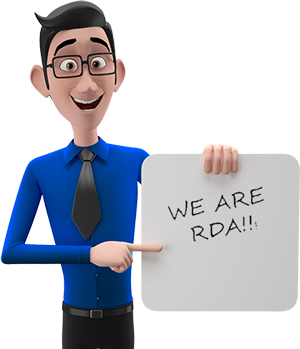HOA Property Management plays a vital role in shaping the living experience within a community. Selecting the right property management company for your Homeowners Association (HOA) can significantly impact community living. As HOAs grow in number and complexity, understanding the role of a property management company becomes crucial for ensuring a harmonious and well-maintained environment.
There are multiple factors to consider when choosing a management company, from its experience in the industry to its knowledge of HOA laws. Effective communication and community engagement also play pivotal roles in fostering a strong relationship between management and residents.
This article will guide you through essential elements to evaluate in a property management company, including administrative capabilities, financial management, and conflict resolution skills. By examining these aspects, you’ll be better equipped to make an informed decision that aligns with your community’s needs.
Key Factors in Selecting a Property Management Company
When it comes to ensuring the smooth day-to-day operations and maintaining the quality of life within a homeowners association (HOA), choosing the right property management company is critical. Property management services can range widely, so it’s important to be informed about what specific services a company offers, how effectively they handle legal issues, and if they have a proven track record of financial stability. Before starting your search for a prospective management company, it is important to review your governing documents to confirm that hiring a property management company is permissible for your HOA.
As you embark on selecting a property management company, consider assembling a list of your HOA’s needs and expectations. This will help you measure each company’s capabilities against your criteria. It is often recommended to select a shortlist of two to three management companies for in-depth interviews. During these interviews, assess each candidate’s ability to manage daily operations, communicate effectively with the board and residents, understand community rules, and contribute to strategic planning.
Be aware of the fee structure that each property management company proposes. Common fees to account for include initiation fees for taking over operations, ongoing fees that are typically charged per unit, and potential exit fees incurred when changing management companies. Ensure these costs are factored into your annual budget planning.
Ultimately, partnering with a professional management company can enable your board members to concentrate on larger strategic aspects of community management while relying on the property management firm to handle the intricacies of daily tasks and community engagement.
Experience and Reputation
Selecting the right property management for your HOA can significantly impact your community’s quality of life. Experience and reputation are pivotal factors to consider when choosing a management team to oversee the day-to-day operations of your HOA.
A company with an established history in the field likely understands the complex nature of property management, including the resolution of legal issues and financial stability. Their years of service can be indicative of their expertise in managing the annual budget and enforcing community rules.
One effective way to gauge a company’s reputation is by looking at the feedback from their current and previous clients. Prospective management companies should voluntarily offer references. These client references and testimonials are invaluable as they shed light on the company’s reliability, hasten open lines of communication, and quality of service.
A professional management company with a strong track record will usually have developed flexible strategies that cater to the specific needs of different communities, thereby enhancing residents’ quality of life. Such a company demonstrates strategic planning capabilities crucial for the informed decision-making processes of the fellow board members.
Remember, a management company’s experience and reputation play a crucial role in maintaining a harmonious community and ensuring the smooth operation of daily activities within your HOA.
Knowledge of HOA Laws and Regulations
Selecting the right property management company for your Homeowners Association (HOA) necessitates a deep understanding of the legal landscape in which your community operates. Knowledge of state HOA laws, Fair Housing laws, and local municipal ordinances is not merely advantageous but essential for a management team. This legal acumen ensures the association adheres to all regulatory requirements, thereby preventing avoidable legal entanglements.
When evaluating prospective management companies, it’s vital to assess their grasp of these laws and regulations. This expertise is foundational for advising the HOA board on compliance matters, tactically navigating day-to-day operations, and upholding community rules fairly and consistently. An informed decision in this regard contributes to the overall quality of life in the community.
A well-versed management team in legal issues can also perform strategic planning with a clear understanding of the legal implications, thus safeguarding the community’s financial stability and fostering peace among residents. In essence, a professional management company with strong legal knowledge is a crucial ally in creating a harmonious living environment and maintaining the community’s well-being.
|
Legal Knowledge Areas |
Relevance to HOA Management |
|---|---|
|
State HOA Laws |
Ensure operational compliance |
|
Fair Housing Laws |
Prevent discrimination issues |
|
Local Ordinances |
Adhere to area-specific regulations |
Choosing an HOA management company with a firm grasp of these aspects is essential for effectively navigating the complexities of community governance.
Effective Communication Skills
Effective communication stands as the cornerstone of managing a homeowners association (HOA). It paves the way for the seamless relay of information between board members, employees, vendors, and homeowners, forging strong community ties and ensuring the smooth running of day-to-day operations.
The right management company excels in conveying the intricacies of HOA tasks, efficiently assigning duties while maintaining an ongoing dialogue to address concerns swiftly. Their adept use of technology and specialized HOA software further streamlines processes, bridging gaps in communication, and fostering an environment of transparency.
Moreover, a strategic communication approach not only boosts homeowner participation but also nurtures a sense of belonging. When homeowners are well-informed, they are more likely to contribute positively to the community’s quality of life.
An effective management team serves as a valuable resource in clarifying community regulations. By providing homeowners with clear and comprehensible information, they ensure that all community members are on the same page, thereby mitigating potential conflicts and legal issues.
In brief, strong communication skills in an HOA management company underscore the importance of keeping all parties informed and engaged, a critical factor in upholding the community’s harmony and efficiency.
Community Engagement Practices
Community engagement is a crucial aspect of maintaining a harmonious and functioning HOA. Property managers play an integral role in bolstering community involvement. Their responsibilities extend to serving as a vital link between the HOA board and the residents, which ensures smooth communication and prompt updating of community affairs. The organizational skills of property managers shine through in arranging board meetings and community events, thereby fostering participation.
Communication is key, and property managers are at the helm, developing notices and relaying critical information to the homeowner’s association, ensuring that residents are kept in the loop regarding significant events and decisions. They take an active role in addressing resident concerns, thereby nurturing positive community relations and cultivating a spirit of togetherness within the neighborhood.
Furthermore, the administrative aid provided by property managers frees up HOA board members to concentrate on greater strategic planning and complex community matters. This division of labor enhances the board’s efficiency, ultimately contributing to improved governance and a higher quality of life within the community. As such, the role of property managers is indispensable in maintaining an active, informed, and involved community.
Administrative Capabilities
Choosing the right property management company involves evaluating their administrative capabilities, which encompass a range of services that are critical for the efficient operation of your HOA. An effective property management team is expected to respond to homeowner inquiries promptly and offer robust financial administration support. Regular management reports are indispensable, keeping the board well-informed about the day-to-day operations within the community. These reports contribute to transparency and enable members to make informed decisions.
Moreover, organization is key, with property managers being responsible for coordinating board meetings and community events. This requires excellent communication skills and the ability to facilitate discussions and activities that involve all residents, ensuring that everyone has a voice in the HOA. A professional management company should invest in reliable computer systems to streamline the process of collecting dues and maintaining accurate financial records. This ensures that transactions are handled efficiently, reducing the likelihood of errors.
The property manager often acts as a liaison between the HOA board and the community members. As the primary point of contact, they play a central role in nurturing healthy relationships and addressing any concerns raised by residents. One of the property manager’s principal duties involves maintaining open lines of communication, which is vital to the health and wellbeing of the community. Their administrative proficiency ensures smooth and effective governance, which contributes significantly to the overall quality of service delivered to the residents.
Budgeting Processes
A management company that demonstrates expertise in budgeting and financial planning is an asset to any HOA. Part of their suite of property management services should include the preparation of budgets, collection of dues, and thorough financial reporting. These tasks are crucial for keeping a close watch on the community’s finances and enabling cost-effective decision-making. The preparation and management of an annual budget require careful consideration and strategic planning, and a professional management company will have both the skill and the experience to guide the HOA through this process.
Financial transparency is of the utmost importance, and reputable management companies will ensure that fees and contractual obligations are clearly communicated. Detailed financial reports are produced to provide both board members and residents with clarity on the community’s financial well-being and adherence to the budget. By handling these financial matters, the property management service allows the HOA board to devote their attention to broader community goals and initiatives rather than getting entangled in the minutiae of daily financial tasks.
Vendor Relationships
Vendor management is another critical aspect of property management services. Reputable management companies should demonstrate vendor neutrality, meaning they select service providers based solely on the quality, cost-effectiveness, and alignment with the community’s needs rather than personal affiliations. Experienced property managers have established networks of trusted vendors, which is particularly beneficial when addressing emergencies and ensuring timely service.
When considering vendors, prospective management companies should assess the provider’s history of service disputes, legal issues, and overall reputation. These factors are crucial in determining the likelihood of obtaining reliable and quality services. Once selected, all vendor contracts should undergo a legal review to circumvent any potential legal matters and ensure the protection of the HOA’s interests.
Establishing a system to monitor vendors’ service delivery ensures that they stay in line with contract terms. This allows the property management team to address any concerns as they arise promptly and maintain the quality of life within the community. Strong vendor relationships managed by a competent property management company can lead to better services, reduced costs, and enhanced community satisfaction.
Financial Management
Ensuring the financial stability of a homeowners association (HOA) is a fundamental task that requires astute financial management by the selected property management company. A proficient management team understands the importance of establishing and maintaining a transparent and accurate annual budget in close collaboration with the HOA board. This co-operative effort is vital for planning operational costs and making informed decisions about capital improvements that can significantly affect the community’s quality of life.
Furthermore, the skilled management of an HOA demands attention to detail when it comes to the collection of dues and assessments. The property management company should employ fair but firm procedures to secure timely payments from homeowners, thereby protecting the financial health of the association. In instances of late payments, it is essential for the management company to follow established procedures—one that are both ethical and within legal parameters—when interacting with homeowners to resolve these issues.
Financial discernment also extends to the guidance provided to the HOA board in creating and adjusting budgets, as well as delivering timely and effective reports on the financial well-being of the community. Implementing efficient financial management practices allows an HOA to function smoothly, keeping the community strategically aligned with its financial goals.
Transparency in Financial Reporting
Transparency in financial reporting is an indispensable trait of a reputable HOA management company. Providing the HOA board with regular, transparent, and detailed financial reports enables the board to make informed decisions and manage the community’s funds responsibly. These reports should be easily understood and include balance sheets, income statements, cash flow statements, and a ledger detailing all transactions. These documents offer a clear view of the financial standings of the HOA and are imperative for short- and long-term financial planning.
Clear financial reports contribute to the financial stability of the HOA by allowing informed planning for both immediate operational costs and future capital improvements. Management companies should be evaluated critically on their level of transparency concerning financial processes and their ability to maintain an exact budget in unison with the HOA board’s strategies. Establishing a trustworthy relationship built on the foundation of transparency and ethical practices in amassing and managing HOA dues and assessments cannot be overstated in its importance.
Fee Structures and Additional Costs
Understanding the fee structures and potential additional costs is critical when selecting a management company for your HOA. A professional management company typically charges several types of fees including initiation fees for taking over the day-to-day operations, ongoing monthly fees based on the number of units, and potentially exit fees, should the HOA decide to change companies. To make an informed decision, the HOA board should request a detailed fee schedule that outlines all the anticipated costs.
These fees can vary, with the average monthly cost for management services ranging from $10 to $60 per unit. Some companies might opt to calculate fees as a percentage of the member fee instead. Transparency regarding fees and a clear understanding of the services included is paramount to prevent pitfalls such as surprise fees or unexplained costs—a common problem that can quickly deteriorate the trust between the HOA board and the property management company.
It is essential to maintain open lines of communication about fee structures and to ensure that all potential charges are clearly outlined in any contracts or agreements. This attention to detail will prevent misunderstandings and help maintain a collaborative relationship between the HOA board and the property management firm, which is integral to the continued success and financial stability of the community.
Conflict Resolution Skills
Conflict resolution skills are an essential attribute of a competent property management team, pivotal in addressing the myriad of disputes that can emerge within an HOA community. Candidates aspiring to handle the day-to-day operations of the HOA must showcase a solid track record of conflict management through tangible examples from their past experiences. These narratives should offer a window into their problem-solving methodologies, their adaptability when facing challenges, and their overall strategic planning for peacekeeping.
The ability to navigate the complex terrains of group dynamics and to broker agreements between members with differing opinions is a testament to a manager’s capability in fostering a harmonious community environment. Property managers must combine their conflict resolution proficiency with effective communication skills. The latter ensures clear lines of communication, enabling prompt responses to homeowner concerns, and upholding the quality of life within the community. It’s through this combination of diplomacy and open dialogue that property managers contribute significantly to the community’s well-being and the successful resolution of legal matters or compliance issues pertaining to community rules. Assessing these skills in prospective management companies is crucial for the HOA board to make an informed decision and ensure financial stability and the community’s peace.
Emergency Response Protocols
Effective handling of emergencies is an essential component of a professional property management company. Acting as the crucial link, property managers ensure swift and clear communication with residents and the HOA board when critical situations arise.
Key Responsibilities:
- Quick Communication: Property managers are responsible for immediate outreach to all stakeholders, ensuring that everyone is informed and prepared during emergencies.
- Vendor Mobilization: Utilizing a strong network of vendors, they can promptly coordinate necessary repairs and maintenance, minimizing damage and interruptions to daily life.
- Preventative Measures: By taking a proactive stance, property management can identify potential issues early, preventing them from escalating into larger, more costly problems.
- Community Coordination: Organizing and facilitating community meetings, and distributing notices are vital for rallying collective efforts during urgent situations.
- Board Focus: With the day-to-day burden lifted, HOA board members are free to concentrate on higher-level strategic planning and decision-making, which is crucial for effective emergency management.
By entrusting a capable management team, HOA’s can ensure efficient emergency protocols are in place, preserving the quality of life and financial stability of the community.
Compliance with Regulations
Selecting the right property management for your HOA is crucial in maintaining compliance with various regulations. States often have specific licensing requirements for management companies to operate legally. Before hiring, confirm that the company is appropriately licensed in your state.
A management company certified by the Community Associations Institute (CAI) can offer additional assurance of their expertise. Such certification ensures that the management team has access to up-to-date resources and training for managing legal issues effectively.
HOA property management is fundamental in upholding community rules and promoting a standard of living that aligns with the quality of life expected by residents. Their day-to-day operations include staying abreast of the shifting landscape of local, state, and federal laws.
These companies are responsible not only for advising on compliance but also for providing guidance on legal matters affecting the community’s operations. This professional advice helps protect the HOA from inadvertent violations and enhances its overall governance and financial stability.
In summary, when assessing prospective management companies, prioritize those with proven records of regulatory compliance to ensure they can capably support your community’s needs.
Available Services and Support
Available Services and Support
Choosing the right property management company is pivotal in enhancing the quality of life within a community. These companies specialize in a array of essential services which strengthen the day-to-day operations of an HOA. Key services include:
- Administrative Assistance: Management teams take charge of critical tasks like dues collection and the maintenance of financial records, which greatly reduces the burden on board members.
- Maintenance Services: They consistently tend to communal spaces such as gardens, pools, and clubhouses, playing a vital role in preserving or even boosting property values.
- Vendor Networks: A reputable property management company brings with it a vast network of experienced vendors, ensuring that all maintenance and technical jobs are handled with expertise and efficiency.
- Regular Inspections: Competent firms conduct inspections on a routine basis—monthly, quarterly, or semi-annually—to proactively address the conditions and maintenance needs of properties.
Furthermore, a hallmark of a professional management company is its commitment to keeping open lines of communication. This ensures transparent and effective interactions between the management team, the HOA board, and the residents, leading to improved community engagement and swift resolution of issues.
Assessing Company Culture and Values
Selecting the right property management company for your HOA involves a careful assessment of the company’s culture and values to ensure they align with those of your community. This alignment is critical for fostering a harmonious working relationship which is essential for the smooth day-to-day operations of your neighborhood.
A management company that takes a proactive approach to maintenance and community enhancements demonstrates a commitment to the quality of life of your residents. Equally important is a firm stance on transparency and integrity, particularly in financial transactions and the handling of legal issues, which can impact the financial stability of the HOA.
Effective communication is another vital component. A company that maintains open lines of communication with both the board and residents provides a clear understanding of community rules and fosters trust within the community.
When bringing a new management team on board, providing them with a detailed orientation on the HOA’s structures and expectations will facilitate strategic planning and help in realizing both short and long-term objectives. Prioritizing these traits in a professional management company will aid in making an informed decision for the betterment of your community.
|
Key Traits |
Importance |
|---|---|
|
Alignment of Values |
Ensures smooth collaboration |
|
Proactive Maintenance |
Enhances community quality of life |
|
Transparency and Integrity |
Establishes trust and compliance |
|
Effective Communication |
Keeps community well-informed |
|
Detailed Orientation |
Sets the foundation for success |
By focusing on these essentials, HOAs can ensure they select a property management service that upholds the community’s standards and contributes positively to its governance and operations.
The Importance of References and Reviews
Understanding the track record of prospective management companies through client references and reviews is vital for any homeowner’s association (HOA) when selecting a partnering firm. Soliciting feedback from other HOAs that have engaged with the management company offers a direct glimpse into their operational effectiveness and can shed light on the level of professional management one can expect. These insights help to determine how well aligned a company is with your community’s specific needs and objectives.
References will also speak volumes about a company’s ability to maintain open lines of communication, handle daily operations efficiently, and manage legal matters with competence. Moreover, customer satisfaction levels present in reviews are often indicative of whether the management team can positively impact the quality of life within the community. In essence, a thorough examination of references and reviews assists the board in making an informed decision, ensuring that financial stability, strategic planning, and adherence to community rules are handled with the utmost diligence. This due diligence often leads to a selection that will contribute to faithful execution of the annual budget and ensure the smooth running of day-to-day operations, all of which are paramount for sustaining a thriving HOA.
Table of Considerations:
|
Criteria |
Description |
|---|---|
|
Professionalism |
Management team’s conduct and respect for community rules |
|
Service Quality |
Effectiveness at enhancing community life |
|
Communication |
Openness and clarity in lines of communication |
|
Financial Management |
Proper handling of the annual budget and financial stability |
|
Legal Competence |
Capability in managing legal issues and affairs |
Choose a management company that best aligns with the table of considerations above based on comprehensive references and reviews.
Final Considerations Before Selecting a Company
Before finalizing your decision on a property management company for your Homeowners’ Association (HOA), it’s crucial to address several final considerations that go beyond initial reviews and recommendations. Chief among these considerations is understanding the specific needs of your association. Identify the areas where your HOA requires additional support, such as maintenance, administration, or compliance with community rules, and compare these with the capabilities of prospective management companies. This ensures the services you pay for are not only needed but will be effectively utilized.
Affordability is another significant factor—establish a clear understanding of your budgetary constraints to know how much your association can afford to spend on management services. A thorough assessment helps prevent financial strain on the HOA’s resources.
To assist in making a well-rounded decision, forming a search committee that includes a mix of board members and community volunteers can prove invaluable. The diverse perspectives offered by this committee can lead to a well-informed decision that serves the entire community’s interests.
Creating a Request for Proposal (RFP) will serve as a critical step in the selection process. An RFP allows you to articulate your expectations and requirements in detail, providing prospective management companies with a clear blueprint of what their responsibilities would entail if selected.
It’s also essential to understand the range of services each potential management company offers. Knowing whether they can handle administrative tasks, oversee regular maintenance, or provide customer service – and to what extent – will ensure alignment between what is expected and what can be delivered.
Lastly, one must take into account the different pricing models that management companies may propose. From initiation fees, ongoing service fees to potential exit costs, having a complete picture of all associated expenses will facilitate a more informed financial decision regarding which company to partner with.
Importance of a Trial Period
Opting for a trial period with a management company can serve as a safety net, allowing your HOA to evaluate the partnership’s effectiveness before committing long-term. Such a period can be a testament to the company’s stability and ability to provide continuity, which is crucial for the successful operation of the association.
Professional HOA management can relieve board members from the minutiae of day-to-day operations, freeing them to focus on strategic planning and broader community development. Transparency during the trial period is vital—it fosters accountability, easing the concerns of both board members and homeowners.
Expertise in managing legal matters and advising on governing documents and local regulations offered by knowledgeable management companies during a trial run can highlight their value in minimizing legal risks and ensuring compliance.
Effective financial management is also put to the test during this period. The prospective company’s approach to budgeting, financial reporting, and dues collection should demonstrate their ability to contribute positively to the community’s financial health.
Ongoing Evaluation of Performance
Once a property management company has been selected, it’s essential to continuously evaluate their performance to ensure they meet the community’s needs and uphold the standards set by the HOA board. Regular reviews against predetermined benchmarks provide a framework for this assessment, ensuring the services delivered match the agreed-upon expectations.
Clear communication channels between the HOA board and the management company are essential for maintaining transparency. A regular schedule for updates and discussions helps both parties stay informed about the community’s status and management activities.
Defining the management company’s specific responsibilities, as well as those of the HOA board, is critical for fostering effective collaboration. This clarity prevents overlap in duties and ensures that all aspects of community management are adequately covered.
Encouraging feedback from residents on the company’s performance is also advisable. Such input can surface actionable insights into areas needing improvement, enhancing the overall service quality.
Lastly, while the management company may handle the daily operations, it remains critical for the HOA board to maintain oversight of legal and financial matters. This oversight is imperative to ensure ongoing compliance with laws and the proper management of the community’s funds and legal interests.
Related Articles:
- HOA Property Manager Responsibilities: A Financial Perspective
“A financial perspective on HOA property manager responsibilities.” - Evaluating Potential Vendors for HOAs: Key Questions for Success
“Key questions to ask when evaluating potential vendors for your HOA.” - How to Set Up a Self-Managed HOA: Everything You Need to Know
“Comprehensive steps and best practices for setting up a self-managed HOA successfully.”








